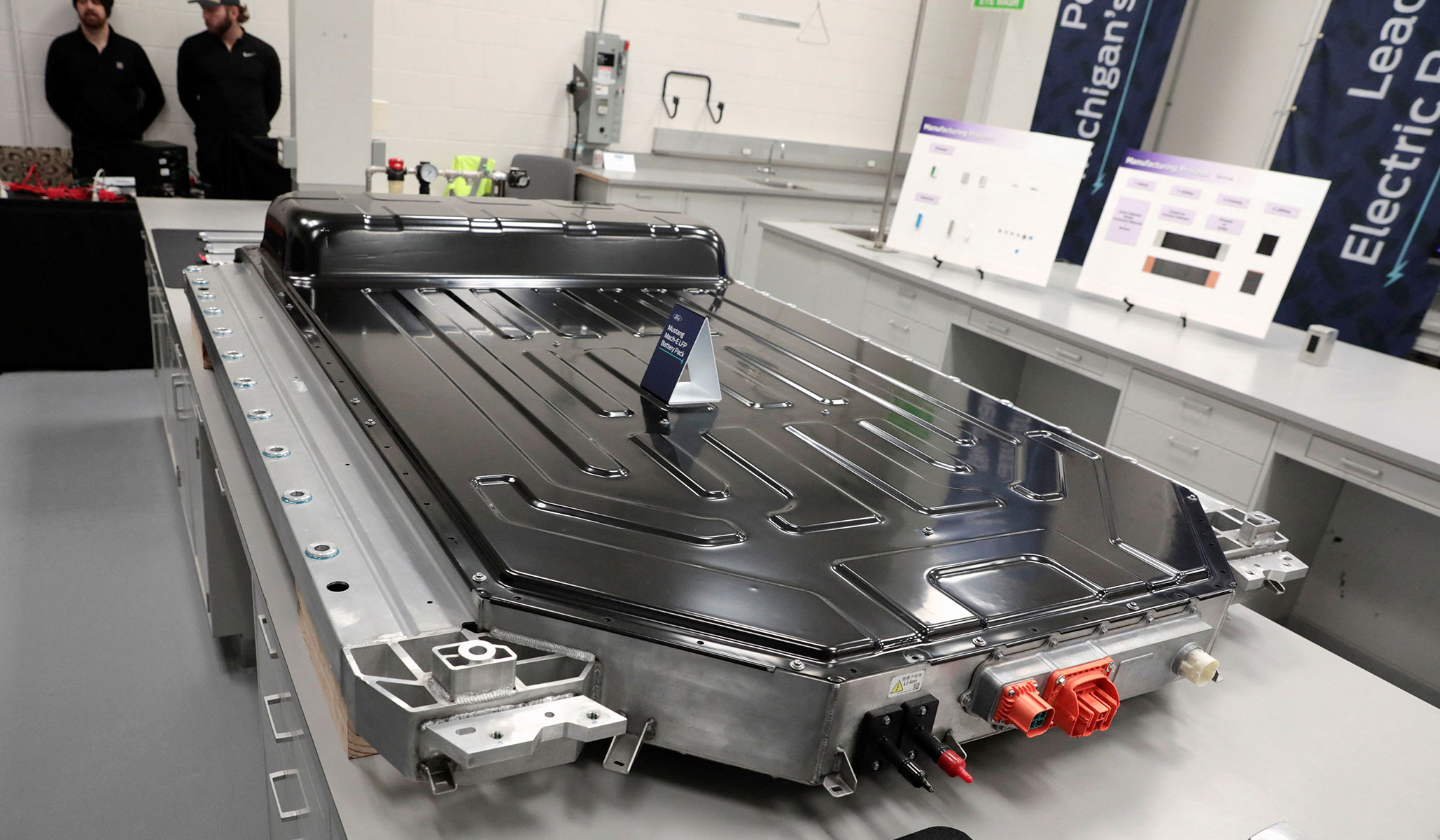


Two leading House Republicans sent a letter Thursday to Ford CEO James Farley announcing they are investigating the partnership between the U.S. automaker and China-based battery-maker Contemporary Amperex Technology Co., Limited (CATL).
Select Committee on China chairman Mike Gallagher (R., Wis.) and Ways and Means chair Jason Smith (R., Mo.) explained that while Ford has claimed the partnership will create thousands of American jobs and further the company’s commitments to human rights and battery technology advancements, the opposite is true on all counts.
The representatives have reason to believe that a significant portion of the 2,500 jobs promised will be given to Chinese citizens instead.
Additionally, reads the letter, “public financial disclosures and PRC media reporting suggest that shortly following the announcement of the partnership between Ford and CATL, CATL took steps to maintain effective control while appearing to divest its ownership stake in companies based in the Xinjiang Uyghur Autonomous Region (Xinjiang) that allegedly are connected to forced labor practices.”
According to the letter, Xinjiang Lithium — the company in question — engages in state-sponsored labor transfer programs. In many cases, the laborers are “subjected to constant surveillance.”
“Finally, it is not clear that Ford’s licensing agreement will in fact contribute to the growth of the U.S. domestic battery sector and decrease our reliance on foreign countries of concern like the PRC, as many Democrats claimed the Inflation Reduction Act was intended to do,” the representatives explained.
Ford may remain dependent on China for critical battery inputs and components, and if that’s the case, “the company will be exposing itself and U.S. taxpayers to the whims of the Chinese Communist Party and its politics,” as the pair put it.
Gallagher and Smith requested further information from Ford pertaining to their investigation.
The congressional oversight comes as congressional Republicans, as well as the 2024 Republican field, focus their criticism of the Biden administration on its electric-vehicle push and cozying relationship with China.
In April, the White House announced proposed EPA rules to ensure that electric vehicles make up a supermajority of new auto sales by 2032.
In an attempt to make what analysts consider to be an unrealistic transition given demand and the underlying infrastructure, automakers like Ford have had to institute job cuts. Critical minerals are needed to create batteries for electric vehicles and China has a stranglehold on that market, raising concerns the U.S. and its automakers will become more reliant on a hostile power.
Republican frontrunner Donald Trump released a video this week in which he claimed only his presidency can save the country from Biden’s “ridiculous Green New Deal crusade.”
“Joe Biden is waging war on the U.S. auto industry, with a series of crippling mandates designed to force Americans into expensive electric cars,” explained Trump.
Seeing an opening, the former president called on the United Auto Workers (UAW) to endorse him. While most unions have rushed to support Biden, the UAW is frustrated with his electric-vehicle push and is withholding its endorsement for the time being.
